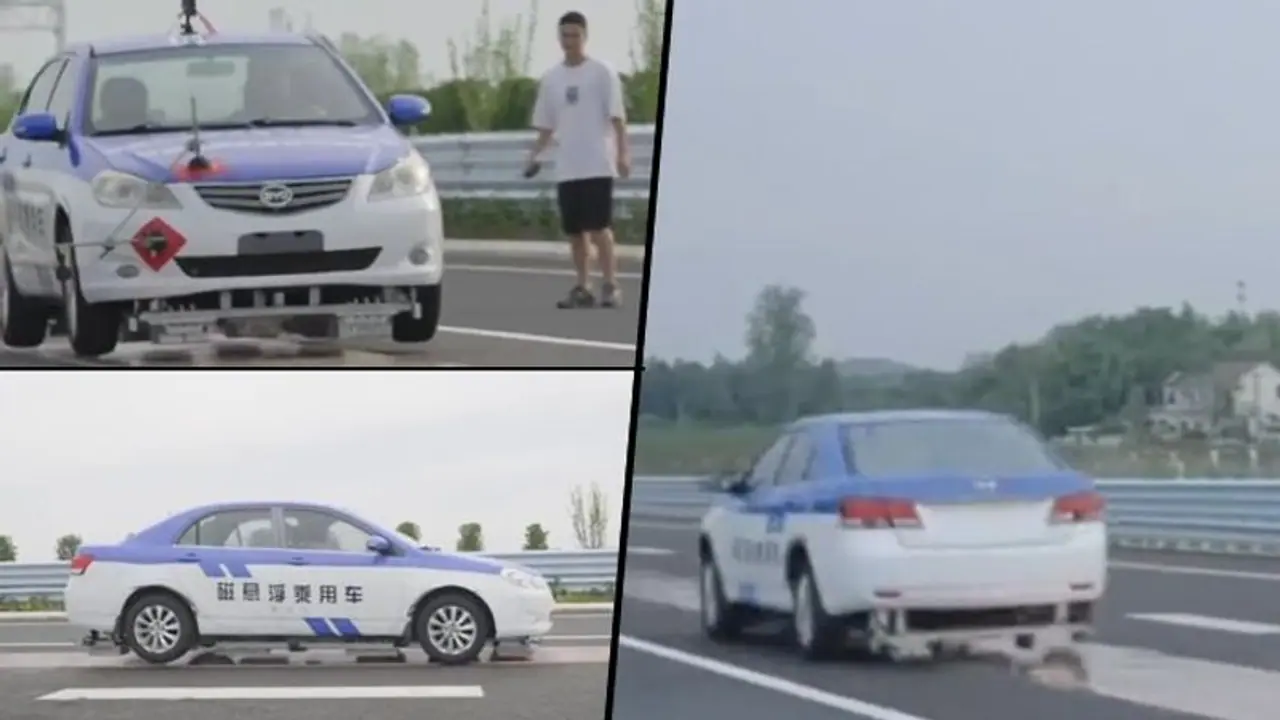Chinese researchers at Southwest Jiaotong University in Chengdu, Sichuan province, performed road tests last week for modified passenger cars that use magnets to float 35 millimeters above a conductor rail, according to Chinese state news agency Xinhua.
If you've ever envisioned a world with flying automobiles, your fantasy may be edging closer to becoming a reality. According to Chinese state news agency Xinhua, Chinese researchers at Southwest Jiaotong University in Chengdu, Sichuan province, conducted road testing last week for modified passenger cars that utilise magnets to float 35 millimetres above a conductor rail.

The sedans were fitted with strong magnets on the vehicle floors by the researchers, enabling them to levitate over a conductor rail that was nearly five miles long. According to the article, a total of eight automobiles were tested, with one test reaching speeds of about 143 miles per hour.
A video posted to Twitter by a Chinese journalist shows the vehicles floating — albeit bumpily — along the track:
The experimental vehicle uses magnetic levitation technology, or maglev, to put it another way. Eight automobiles were fitted with powerful magnets by the researchers, who tested them along an 8-km rail. Unexpectedly, one of the eight automobiles accelerated to 230 km/h. A Chinese journalist shared a video of the cars moving across the track, occasionally appearing to levitate.
According to Xinhua, government transportation authorities conducted the experiments to research high-speed driving safety measures. Since the 1980s, several commercial trains have used magnetic levitation, or "maglev," which accelerates or pulls items using an energised magnetic field. Today, South Korea, China, and Japan all employ maglev trains.
